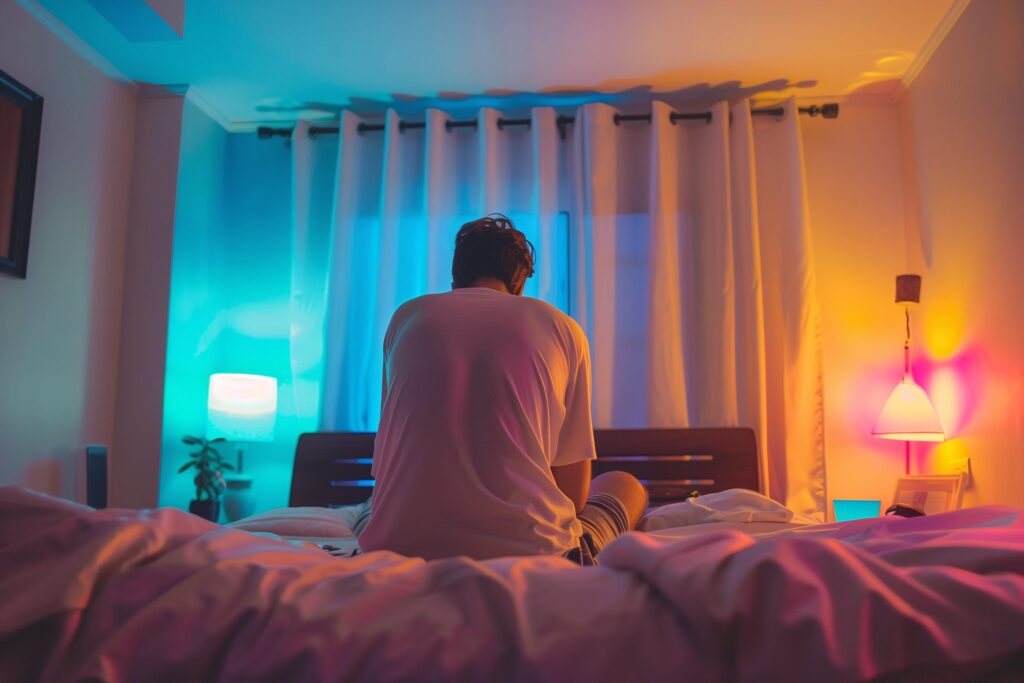
The Pros and Cons of Prescription Sleeping Pills: Is Medication the Right Choice for You?
Are prescription sleeping pills helpful? Discover more about this quick fix to poor sleep to see if this is the best solution for you.

For those who struggle with sleep, you may have considered getting a prescription for sleeping pills. Medication is available to help you get adequate rest, but is it truly the best decision for you? As of 2019, roughly 4% of all adults in the United States used prescription sleep aids to help them get nightly rest. However, it might not all be sunshine and roses for those who take sleeping pills. Unfortunately, there are both benefits and challenges to these medications.
In this article, we’ll uncover the truth about medicated sleeping pills, providing you with a comprehensive look at both the benefits and downsides of using these medications. We’ll explore how they can support your rest and how they might cause challenges in the long term. Let’s first examine the benefits of sleeping pills, of which there are numerous that draw people to these prescriptions every year.
The Benefits of Prescription Sleeping Pills
Many people turn to sleeping pills not only out of necessity but also because there are benefits to using these medications. Depending on the kind of pill that you get a prescription for, you could experience different effects. Here’s a look at some of these expected benefits and why people turn to these sleep medications.
Enhanced Relaxation
Those who have benzodiazepines, a type of sleep medication, enjoy numerous benefits, including enhanced relaxation before bed. This common type of medication for sleep actually activates your GABA receptors in the brain, causing sedation, relaxation, and even promoting your rest. You may even feel less anxiety because of taking this medication. So, if you’re looking for better relaxation before bed to help you get ready for sleep, sleep medications can be of great benefit to you in the short term.
Quick Fix to Poor Sleep
If you struggle with insomnia and you’re unable to get adequate rest, then a quick fix like prescription medication for sleep might just be the perfect fit. Zolpidem and other similar medications help you fall asleep faster, and you can stay asleep for much longer. While it might seem like a risk to take these medications, they can work from the first night, giving you the rest that your body so desperately needs. With such a quick solution available to poor sleep, it’s no wonder why people turn to these medications.
Improved Sleep Quality, Duration, and Onset
One of the challenges many face that makes them consider sleeping pills is that they lack a proper amount of restful sleep. A typical sleep medication, zolpidem, was shown to be tied to decreased sleep latency and improved sleep quality. In other words, if you take this medication—especially for those over the age of 60—you may find yourself falling asleep faster and staying asleep while also enjoying quality rest (Source: Experimental Gerontology).
This is excellent news for those desiring better sleep and further shows how beneficial these medications can be! Not only that, but the same article found that people also had an increase in total sleep time. Thus, if you find yourself struggling with sleep, it might be a good idea to grab a prescription for sleeping pills. However, before you do, let’s take a look at some of the most common issues with sleep medications.
The Challenges of Using Medication for Sleep
Despite the numerous benefits of prescription medication for sleep, you might be surprised to find out that these pills also have innumerable challenges. Because of these challenges, even the Food and Drug Administration (FDA) in the United States has issued black-box warnings about the “serious or life-threatening risks” of many common medications, like Ambien and Sonata. Here’s a look at the common challenges that might deter you from taking these pills.
The Risk of Dependency
For years, people have warned about the dependency risks of sleeping pills. Some medications, like ramelteon, work within specific sectors of the brain, such as the hypothalamus, leading to people potentially becoming dependent upon it because of its specific interaction with the brain. This can be a real issue for those who have trouble sleeping, and it only further shows how sleeping medication might not be the best option for those seeking a long-term solution to their insomnia or other sleep disruptions.
Several Unfortunate Side Effects
With any prescription medication, there are bound to be side effects, but sleeping pills can cause a whole host of potential problems. Even though the side effects are only likely to occur for a select few, it’s still worth noting that any number of sleeping pills you may try could lead to:
- Dizziness
- Headaches
- Nausea
- Diarrhea
- Prolonged drowsiness
- Sleep-related behaviors
- Changes in thinking and behavior
- Daytime performance concerns
- Severe allergic reactions
Even though these are just some of the many side effects, it’s worth noting that this could happen to you. If you’d like to avoid these potential feelings and effects, it might be worth looking into other sleeping remedies for restful nights.
Not a Permanent Solution
If you’re seeking help with a long-term sleep problem, you likely will not find it within your sleeping medication. Unfortunately, many prescription sleep medications are only prescribed in the short term because of the fact that they can lead to substance abuse and even other unfortunate side effects, like the ones mentioned above. While these pills might be a short-term solution, they can certainly lead to improved sleep.
Yet, the challenge becomes how to maintain this beneficial sleep after the prescription ends. That’s why people often do not recommend sleeping pills: there are more valuable, long-term solutions, like changing your sleep habits, that can help promote better rest.
How Will You Support Your Sleep Health?
Now that you know more about sleeping pills and understand how they could impact you, how will you support your sleep health? If you feel that these medications are an optimal short-term solution to improve your sleep, then it is best to reach out to your doctor or another trusted medical provider for assistance. However, for more insight into some of the best tips and tricks to encourage optimal rest, visit our website to learn more.

Written by
Marie Soukup
Marie Soukup is a seasoned copywriter, editor, and Integrative Nutrition Health Coach with a certificate from the Institute of Integrative Nutrition (IIN). With years of experience working with brands across diverse industries, Marie is passionate about holistic health and crafting compelling content.
Download Pillow
Get help
Press & News
Legal
Connect
X (Twitter)
Company
Copyright © Neybox Digital Ltd.



